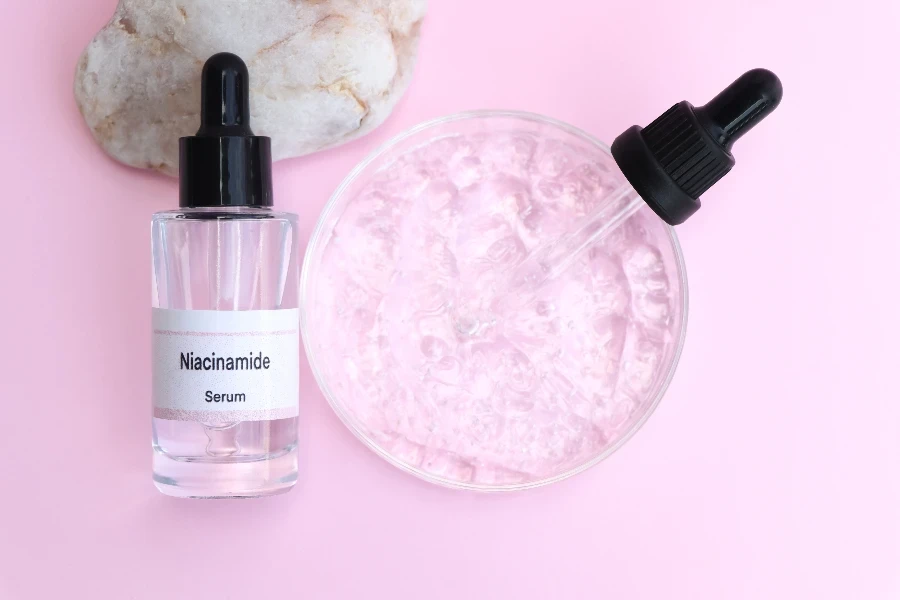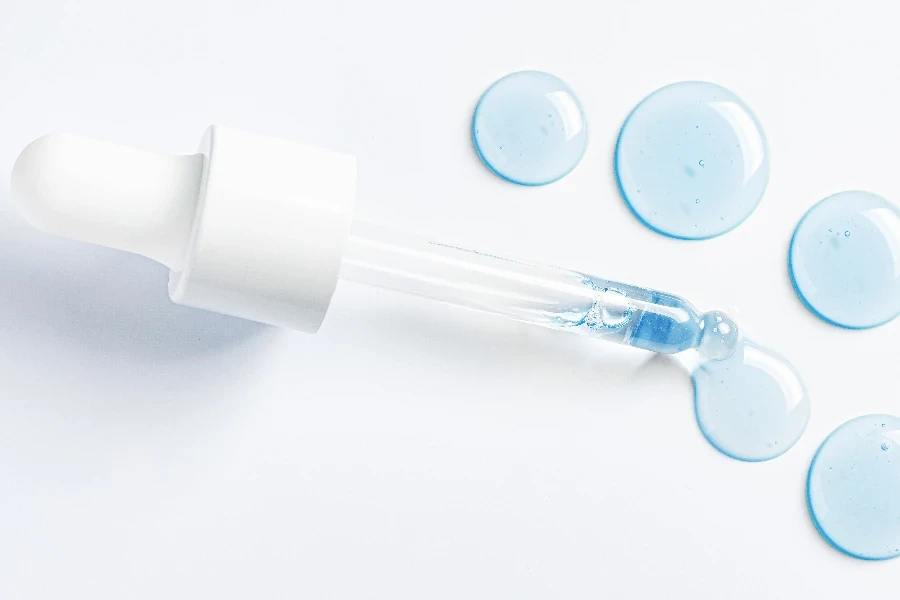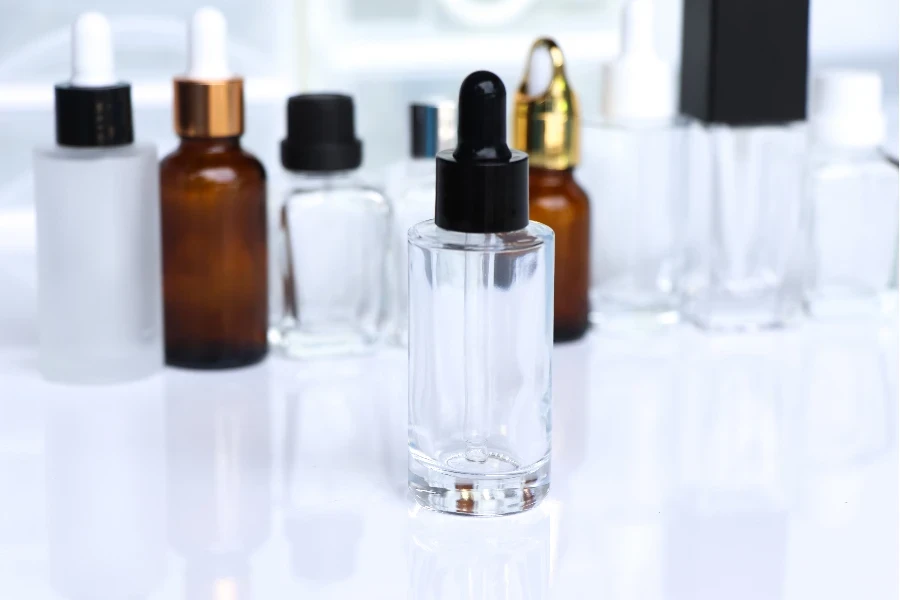Niacinamide serum has emerged as a cornerstone in the realm of skincare, celebrated for its versatility and myriad benefits. This article delves into the essence of niacinamide serum, exploring its advantages, application guidance, compatibility with other skincare ingredients, potential side effects, and its role in a comprehensive skincare regimen. By unpacking these critical aspects, we aim to provide a thorough understanding of niacinamide serum and how it can enhance your skin health.
Table of Contents:
– What is niacinamide serum and its benefits
– How to use niacinamide serum effectively
– Combining niacinamide serum with other skincare ingredients
– Possible side effects of niacinamide serum
– Incorporating niacinamide serum into your skincare routine
What is niacinamide serum and its benefits

Niacinamide, also known as Vitamin B3, is a powerhouse ingredient that offers a wide range of benefits for the skin. Its ability to improve the skin’s barrier function, reduce inflammation, and regulate oil production makes it a sought-after component in serums. Niacinamide serum can help diminish the appearance of pores, fine lines, and hyperpigmentation, making the skin appear more youthful and radiant.
The antioxidant properties of niacinamide serum play a crucial role in protecting the skin from environmental stressors such as pollution and UV radiation. This protection is vital for maintaining skin health and preventing premature aging. Furthermore, niacinamide’s compatibility with various skin types, including sensitive skin, makes it a versatile addition to any skincare routine.
Regular application of niacinamide serum can lead to significant improvements in skin texture and tone. Its ability to boost collagen production contributes to firmer, more elastic skin, while its anti-inflammatory effects can help soothe conditions like acne and rosacea. The serum’s hydrating properties also ensure that the skin remains moisturized and plump.
How to use niacinamide serum effectively

To reap the full benefits of niacinamide serum, incorporating it correctly into your skincare routine is essential. Start by cleansing your face thoroughly to remove any impurities or makeup. This step ensures that the serum can penetrate the skin effectively. After cleansing, apply a toner if you use one, as it can help prepare the skin for the serum.
A few drops of niacinamide serum are usually sufficient for the entire face. Gently massage the serum into your skin in upward motions, ensuring even coverage. Allow the serum to absorb fully before proceeding with the next steps in your routine, such as applying moisturizer or sunscreen.
Consistency is key when using niacinamide serum. For best results, apply it once or twice daily, depending on your skin’s needs and tolerance. Morning application can offer protective benefits against daily environmental stressors, while evening application supports the skin’s natural repair processes.
Combining niacinamide serum with other skincare ingredients

Niacinamide serum’s compatibility with various skincare ingredients enhances its efficacy and allows for a customized skincare routine. It pairs well with hyaluronic acid, which can boost the serum’s hydrating effects, providing deeper moisture to the skin. When used with retinol, niacinamide can help mitigate some of the irritation and dryness often associated with retinol treatments, making it a beneficial combination for anti-aging concerns.
However, caution should be exercised when combining niacinamide with vitamin C. While recent studies suggest that these ingredients can be used together without compromising their effectiveness, it’s advisable to apply them at different times of the day (vitamin C in the morning and niacinamide in the evening) to avoid any potential irritation and to maximize their benefits.
Understanding the interactions between niacinamide and other skincare ingredients ensures that you can safely incorporate it into your regimen without compromising your skin’s health.
Possible side effects of niacinamide serum

While niacinamide serum is generally well-tolerated by most skin types, some individuals may experience side effects, especially with initial use. Common side effects include mild itching, redness, or irritation. These reactions are typically temporary and often resolve as the skin adjusts to the serum.
To minimize the risk of side effects, it’s advisable to perform a patch test before incorporating niacinamide serum into your skincare routine fully. Apply a small amount of the serum to a discreet area of your skin and wait 24 hours to observe any adverse reactions.
If you experience persistent or severe reactions after using niacinamide serum, discontinue use and consult a dermatologist. It’s crucial to listen to your skin and adjust your skincare routine accordingly to maintain its health and well-being.
Incorporating niacinamide serum into your skincare routine

Integrating niacinamide serum into your skincare regimen can significantly enhance your skin’s appearance and health. Start by using the serum once daily, gradually increasing to twice daily as your skin becomes accustomed to it. Pay attention to how your skin responds and adjust the frequency of use if necessary.
For optimal results, combine niacinamide serum with a well-rounded skincare routine that includes cleansing, moisturizing, and sun protection. Remember, skincare is highly personal, and what works for one person may not work for another. Experimenting with niacinamide serum’s application timing and combinations with other products can help you find the perfect balance for your skin.
Conclusion:
Niacinamide serum is a versatile and effective addition to any skincare routine, offering a range of benefits that can lead to healthier, more radiant skin. By understanding how to use it properly, combining it with compatible ingredients, and being aware of potential side effects, you can maximize its potential and achieve your desired skin outcomes. Remember, consistency and patience are key in skincare, so give your skin time to adjust and reap the benefits of niacinamide serum.




